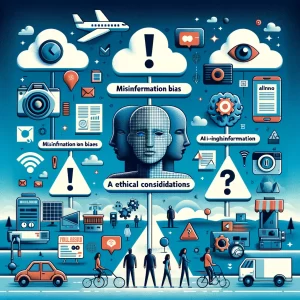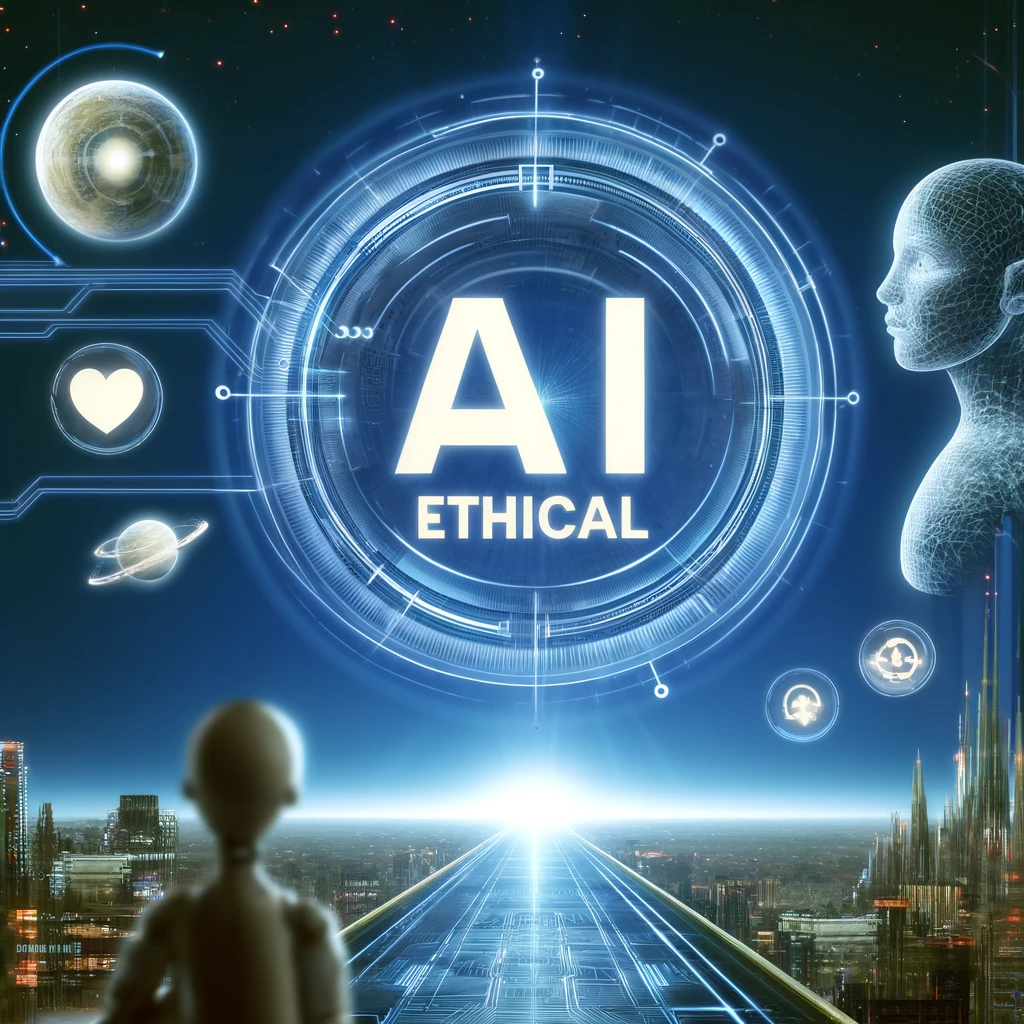Search Engine Optimization (SEO) has long been a cornerstone of digital marketing, shaping how businesses reach their audiences through search engines like Google, Bing, and Yahoo. However, the advent of advanced AI language models, such as OpenAI’s ChatGPT, is poised to revolutionize how we access and interact with information online. Imagine a world where ChatGPT or similar AI models effectively “kill” traditional search engines. How would SEO evolve in such a landscape? This blog delves into the future of SEO in an AI-dominated world, exploring potential shifts, challenges, and opportunities for businesses and digital marketers.
Introduction: The Rise of AI and Decline of Search Engines
The Evolution of Search Engines
Search engines have come a long way since their inception. Early search engines like AltaVista and Lycos gave way to Google, which revolutionized the way we search the web with its sophisticated algorithms. SEO emerged as a critical practice to ensure visibility in search engine results pages (SERPs). Keywords, backlinks, and content quality became the pillars of SEO strategies.
The Advent of AI Language Models
AI language models like ChatGPT represent a significant leap forward in natural language processing (NLP). These models can understand and generate human-like text, making them capable of answering queries, generating content, and even engaging in conversations. As these models become more advanced and integrated into various platforms, they pose a potential threat to traditional search engines.
How ChatGPT Could “Kill” Search Engines
Direct Query Answering
One of the primary functions of search engines is to answer user queries. ChatGPT can provide direct, conversational responses to questions, eliminating the need for users to sift through multiple search results. This shift could reduce the reliance on traditional search engines for information retrieval.
 Enhanced User Experience
Enhanced User Experience
ChatGPT offers a more interactive and personalized user experience compared to static search results. Users can ask follow-up questions, seek clarification, and engage in a dynamic dialogue, making information retrieval more efficient and enjoyable.
Integration with Digital Assistants
AI models like ChatGPT are increasingly being integrated into digital assistants such as Siri, Alexa, and Google Assistant. This integration allows users to access information through voice commands and receive instant, conversational responses, further diminishing the role of traditional search engines.
The Future of SEO: Adapting to an AI-Dominated Landscape
Content Optimization for AI Models
In an AI-dominated world, optimizing content for language models like ChatGPT will become crucial. This involves understanding how these models process and generate text and tailoring content to be easily understood and accurately interpreted by AI.
Semantic SEO
Semantic SEO focuses on the meaning behind search queries and the content itself. Optimizing for AI models will require a deeper understanding of context, intent, and user needs. This means creating content that is not only keyword-rich but also contextually relevant and semantically structured.
Conversational SEO
Given that AI models engage users in conversation, optimizing content for conversational queries will be essential. This involves anticipating the types of questions users might ask and structuring content to provide clear, concise, and comprehensive answers.
The Role of Structured Data
Structured data will play a vital role in the future of SEO. By using schema markup and other structured data formats, businesses can help AI models understand the context and relevance of their content. This will improve the accuracy of AI-generated responses and enhance content visibility.
 Rich Snippets and Featured Answers
Rich Snippets and Featured Answers
Structured data can also help content appear in rich snippets and featured answers, which are prime real estate in an AI-driven search landscape. By providing detailed and well-structured information, businesses can increase their chances of being highlighted by AI models.
Focus on User Experience (UX)
User experience will remain a critical factor in the future of SEO. Ensuring that websites are user-friendly, mobile-responsive, and fast-loading will be essential to maintaining engagement and visibility.
Personalized Experiences
AI models can provide highly personalized user experiences by analyzing user behavior and preferences. Businesses will need to leverage data analytics and AI to offer personalized content and recommendations that resonate with individual users.
Accessibility
Making content accessible to all users, including those with disabilities, will be increasingly important. AI models can assist in this effort by providing alternative formats and ensuring that content is easily navigable and comprehensible.
Challenges and Opportunities
Challenges
Algorithm Transparency
One of the significant challenges with AI models like ChatGPT is the lack of transparency in how they generate responses. Understanding the underlying algorithms and ensuring fairness and accuracy in content representation will be critical.
Misinformation and Bias
AI models are not immune to misinformation and bias. Ensuring that AI-generated content is accurate, reliable, and unbiased will be a significant challenge for businesses and digital marketers.
 Opportunities
Opportunities
Enhanced Engagement
AI models offer new opportunities for engaging with users in meaningful ways. Businesses can leverage AI to provide instant support, answer queries, and guide users through their customer journey.
Content Generation
AI models can assist in content generation, helping businesses produce high-quality content at scale. This can save time and resources while maintaining a consistent content output.
Case Studies: SEO Adaptation in an AI-Driven World
Case Study 1: E-commerce
An e-commerce platform integrates ChatGPT to provide personalized shopping recommendations and answer customer queries in real-time. By optimizing their product descriptions and leveraging structured data, they enhance their visibility and user engagement.
Case Study 2: Healthcare
A healthcare website uses AI to provide accurate and personalized health information to users. By focusing on semantic SEO and structured data, they ensure that their content is easily understood and accurately represented by AI models.
Case Study 3: Education
An online education platform utilizes AI to offer personalized learning experiences. By anticipating student questions and providing comprehensive answers, they enhance the learning experience and improve engagement.
The Future of SEO Strategy
Collaboration with AI Developers
Digital marketers will need to collaborate closely with AI developers to understand the intricacies of AI models and optimize content accordingly. This collaboration will be essential to stay ahead in an AI-dominated landscape.
Continuous Learning and Adaptation
The digital landscape is continuously evolving, and so must SEO strategies. Staying updated with the latest AI advancements and continuously adapting SEO practices will be crucial for long-term success.
Ethical Considerations
As AI becomes more integrated into SEO, ethical considerations will become increasingly important. Ensuring transparency, fairness, and accuracy in AI-generated content will be essential to maintaining user trust and credibility.
Conclusion: Embracing the Future
The rise of AI language models like ChatGPT represents a significant shift in the digital landscape. While the potential “death” of traditional search engines presents challenges, it also offers numerous opportunities for businesses and digital marketers. By understanding and adapting to these changes, businesses can leverage AI to enhance their SEO strategies, engage users in meaningful ways, and stay ahead in an ever-evolving digital world.
 Summary
Summary
The future of SEO in an AI-dominated world will involve:
- Content Optimization for AI Models: Emphasizing semantic and conversational SEO.
- Structured Data: Leveraging schema markup to enhance AI understanding.
- User Experience: Focusing on personalization and accessibility.
- Challenges: Addressing algorithm transparency and misinformation.
- Opportunities: Enhancing engagement and utilizing AI for content generation.
As we embrace this future, continuous learning, collaboration with AI developers, and ethical considerations will be paramount. The evolution of SEO in an AI-driven world will be an exciting journey, offering new ways to connect with audiences and provide valuable, personalized experiences.
By staying informed and adaptable, businesses can not only survive but thrive in this new era of digital marketing. The future of SEO is bright, dynamic, and full of potential, driven by the power of AI and the endless possibilities it brings.


